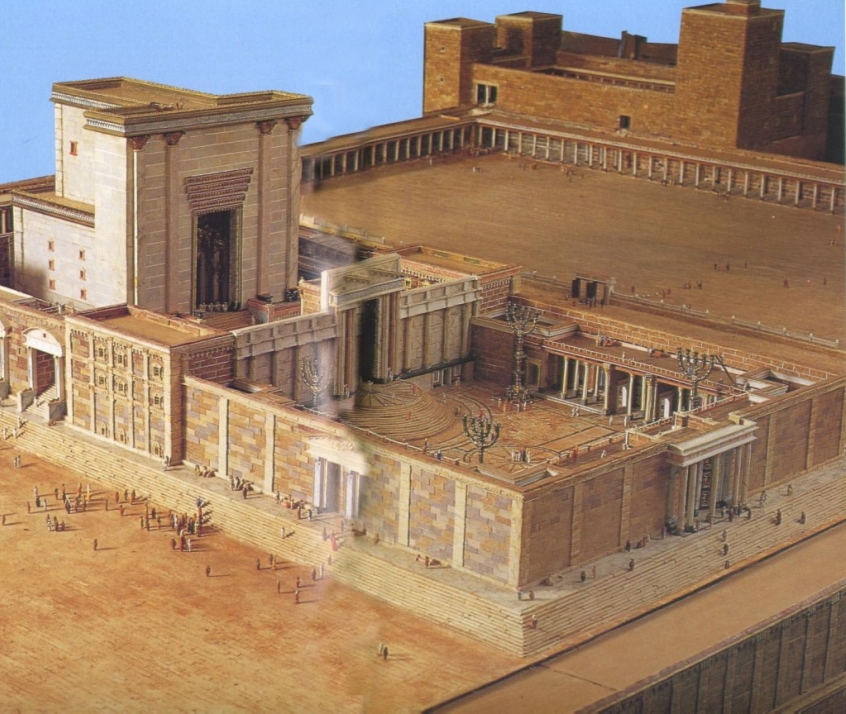
With so much of this week's news coverage being based on the White House, we've seen endless footage of the famous old building itself. When the TV pictures show an aerial shot of the building, I'm always taken aback by quite how small it is. Various grand executive buildings around the world would dwarf the relatively humble home of the President – who remains the world's most powerful person.
The stature of the building, then, doesn't match its importance. Which got me thinking about the most important building in Jesus' day. Unlike today, it wasn't the home of the Roman governor or the local King (Herod). Instead, it was the Temple.
The Temple in Jerusalem was a focus of political power, as well as commerce, civic life, and of course worship. It was the centre of life for first century Jews in a way that we can hardly understand because there is no contemporary equivalent. In fact, the importance of the Temple is illustrated by the number of Jews who still pray to this day at the Western Wall – the only remaining section of the Second Temple.
The First Temple had been built by the great King Solomon and then destroyed by the Babylonians. The Second Temple was built in the 6th Century BC and then redeveloped under Herod. This was the Temple that formed the backdrop to many of Jesus' most radical acts.
He "cleansed the temple" by clearing out the traders who had turned it into "a den of thieves." As a child he disappeared from his parents' sight and was later found among the teachers in the Temple courts – "Everyone who heard him was amazed at his understanding and his answers." (Luke 2:47)
Then, in Luke 21:5-19, we read of Jesus' prediction about the Temple. "When some were speaking about the temple, how it was adorned with beautiful stones and gifts dedicated to God, he said, 'As for these things that you see, the days will come when not one stone will be left upon another; all will be thrown down.'"
His audience would have been incredulous about this prediction. How could the Temple be "thrown down?" It was where the presence of God rested among the people. Though there had been difficult times and the Temple had come close to destruction, it sounded as though Jesus was predicting an imminent existential threat. Though the Romans were harsh occupiers, there had been little sign of what was to come.
Yet within a generation, Jesus' prediction had been shown to be correct. In AD 70, truly catastrophic devastation visited Jerusalem – including the Temple. The whole city was besieged and then sacked. Historian Simon Sebag Montefiore described the scene in his excellent Jerusalem: The Biography. "The inferno rose around the Holy of Holies" he writes, "The cracking of vast stones and wooden beams made a sound like thunder."
Jewish contemporary historian Josephus watched the destruction. "You would have thought the Temple hill was boiling over from its base, being everywhere one mass of flame."
The Temple had been destroyed and would never be rebuilt. With it, the fortunes of Jerusalem waned and wouldn't recover for hundreds of generations.
As well as having predicted its demise, Jesus had also spoken about the Temple in relation to himself. In John 2, he said, "Destroy this temple, and I will raise it again in three days." They replied, 'It has taken forty-six years to build this temple, and you are going to raise it in three days?' But the temple he had spoken of was his body."
In this moment, it is revealed that in the New Covenent, the building itself wasn't going to be the most important thing. Instead, it was the person of Jesus. He was the sacrifice that was being made for our salvation – fulfilling the old system of animal sacrifice which had been an integral part of Temple worship.
Though politics, commerce and civic life are all important, and should be given due care and attention by Christians, they are not the entirety of life. The central role of the Temple in first century Jerusalem isn't just replaced by the role of our church building for 21st century Christians. In fact, Jesus himself takes on that role.









